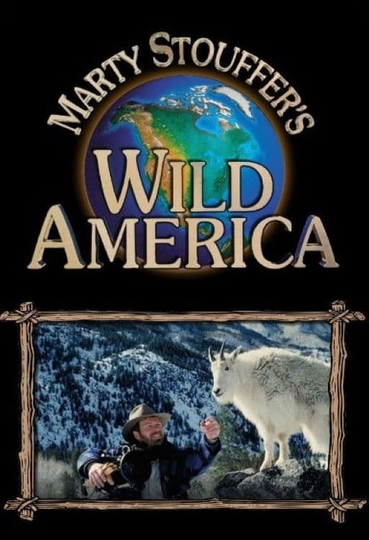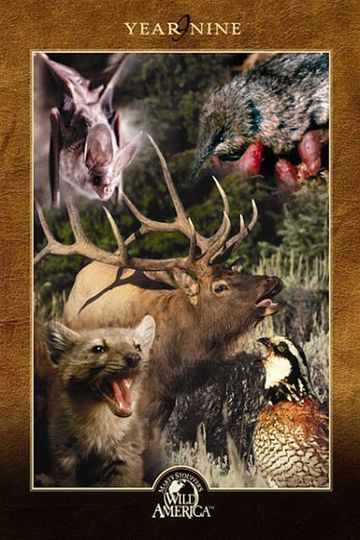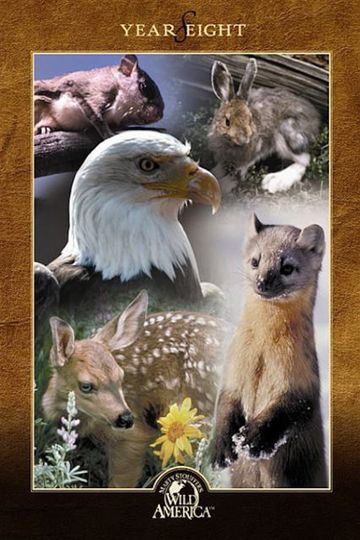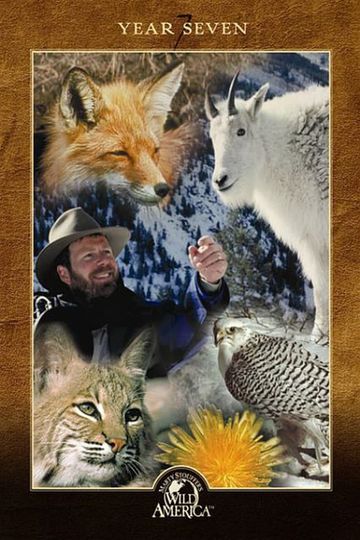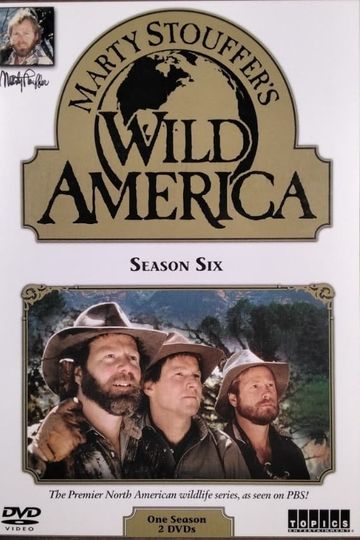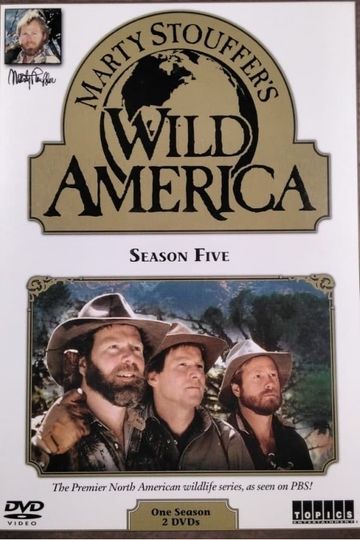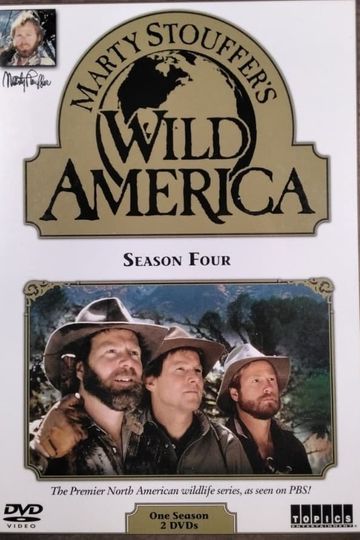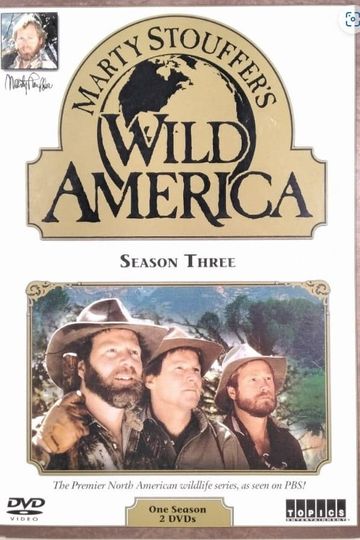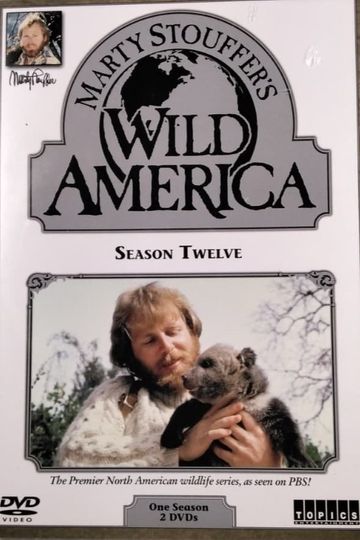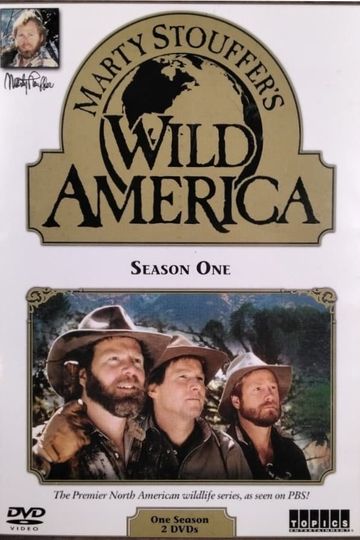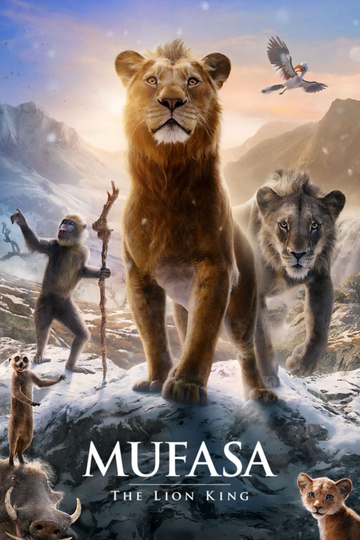Season 7 Plot
Season 7
Marty Stouffer's Wild America Season 7 aired on October 8th, 1989.
Season 7 Episodes
1. Cliffhangers
Montana's Glacier National Park, with its breathtaking scenic vistas and sheer cliffs, is the cloud-scraping home of the Rocky Mountain Goat. Here Marty Stouffer examines the whole life story of this unique snow-white animal. We watch breathlessly as we see how the growing young kids learn to challenge gravity in a vertical world of harsh seasons, rugged crags and sudden avalanches.
2. White On White
On the Arctic tundra, predator and prey alike are aided by fur or feathers the color of snow. Some, like the Gyrfalcon and Snowy Owl, stay white year round; others, like Ptarmigan and Snowshoe Hare, turn white for winter. Forcing its inhabitants to migrate, adapt, or perish, the world's harshest, yet most sensitive, environment is the setting for a continual life-and-death drama.
3. Family Of Foxes
In French, the Fox is called "Reynard", meaning "unconquerable through his cleverness". Is this charming canid as crafty as the fables portray? Does it deserve its reputation as henhouse bandit? We'll find out as we meet these cunning hunters: the Arctic Fox, the Swift and Kit Foxes of our Southwest, the wide-ranging Gray Fox and the well-renowned Red Fox.
4. Peculiar Plants
All life on earth is dependent on the energy from plants. All our food and all the oxygen in the air we breathe have their source in the miracle of photosynthesis. Plants also provide clothing, shelter, and products from paper, to wonder drugs. They are so basic that we tend to take them for granted. Yet consider that some plants are carnivorous, some are luminescent, and some are even self-planting, like these Filaree seeds drilling themselves into the ground. Even so, plants haven't received much respect. We mow and walk on them, burn and poison them, pick and eat them. Let's take a little time to realize how incredible a tiny green sprout can be. Let's meet some "PECULIAR PLANTS."
5. A Multitude of Mollusks
Mollusks are among the oldest living organisms, their fossils dating back 600 million years. And to this day, wherever there's water -- fresh or salty -- you'll find at least one of these fascinating Invertebrates. The second largest group in the Animal Kingdom, they come in a wide variety of sizes, shapes, and surroundings, from high-mountain Snail to deep-ocean Squid.
6. Marmot Mountain
Amid the scenic springtime beauty of the wild Rockies, we meet a colony of Yellow-bellied Marmots waking from winter hibernation. As summer progresses, these social "Rock-chucks", close kin to the Woodchuck, teach their fuzzy young about communal life. One major lesson is diving for safety when a sentry whistles that their primary predator, the Golden Eagle, hovers overhead.
7. Old Man Muskrat
The most widely distributed mammal in North America, is the Muskrat. This medium sized rodent lives anywhere it can find plant food and still water. A diligent worker, it's always swimming, digging, or eating. Beady eyed and all business, it can be quarrelsome. The Muskrat reminds me of a grouchy old man. But it's very well dressed. Its waterproof suit of dense, glistening fur makes it North America's most valuable fur bearer. Let's pay a visit to "OLD MAN MUSKRAT."
8. Chipmunks Of Yosemite
Yosemite, one of our most spectacular National Parks, is home to six species of Chipmunks. Each is found at a different altitude, from dry foothills to 13,000-foot peaks. The life stories of several of these frisky, appealing creatures, and their relationship to humans, are seen amid the grandeur of Bridal Veil Falls, Half Dome and the world's oldest and largest Giant Sequoias.
9. Bobcat
Our most common wild feline is a perfectly designed predator -- quick and clever enough to capture a tiny Meadow Mouse, yet formidable enough to bring down a full-grown Deer. Prey can become play, for this solitary hunter sometimes pesters its captured quarry to death. Easily confused with its cousin, the Lynx, the Bobcat flourishes in close proximity to humans.
10. Evergreen
Our most enduring trees are the Evergreens -- the oldest, tallest, and largest of all living things! Long ago, people thought they were magical and brought their luck indoors to begin the Christmas tree tradition. Haven for a myriad of Birds and Mammals, which seek shelter among their boughs, these are truly trees for all seasons, symbols of the American wilderness.










